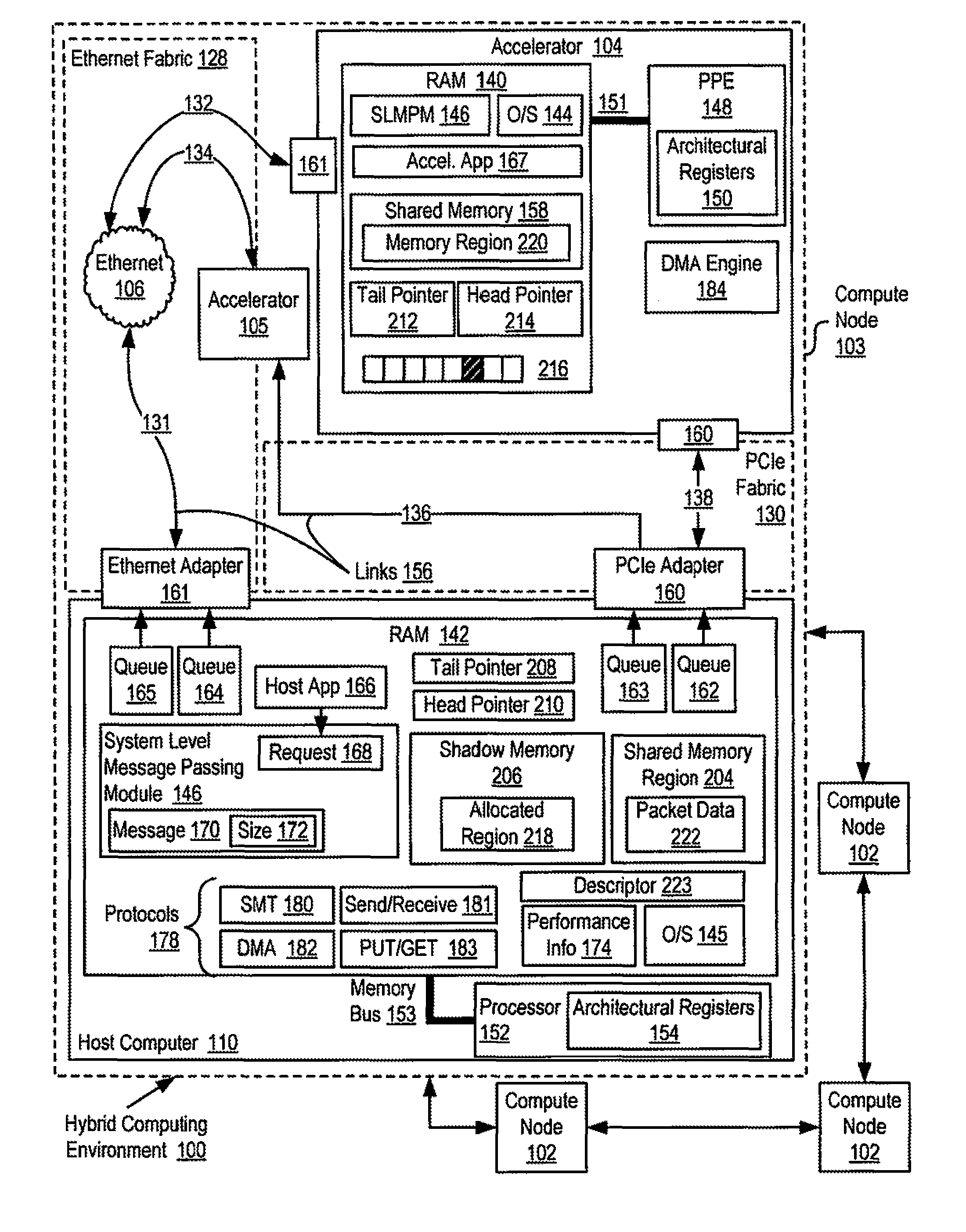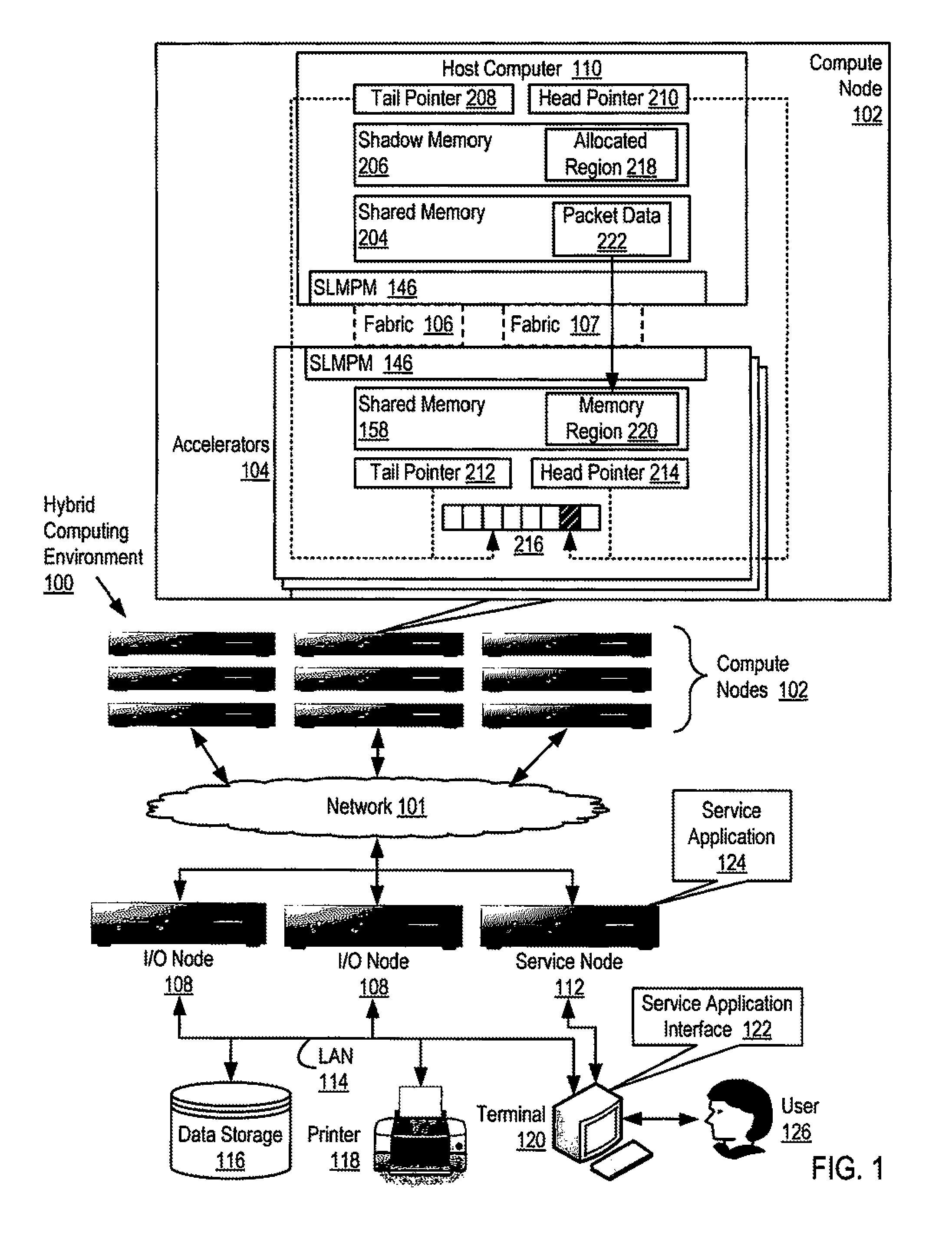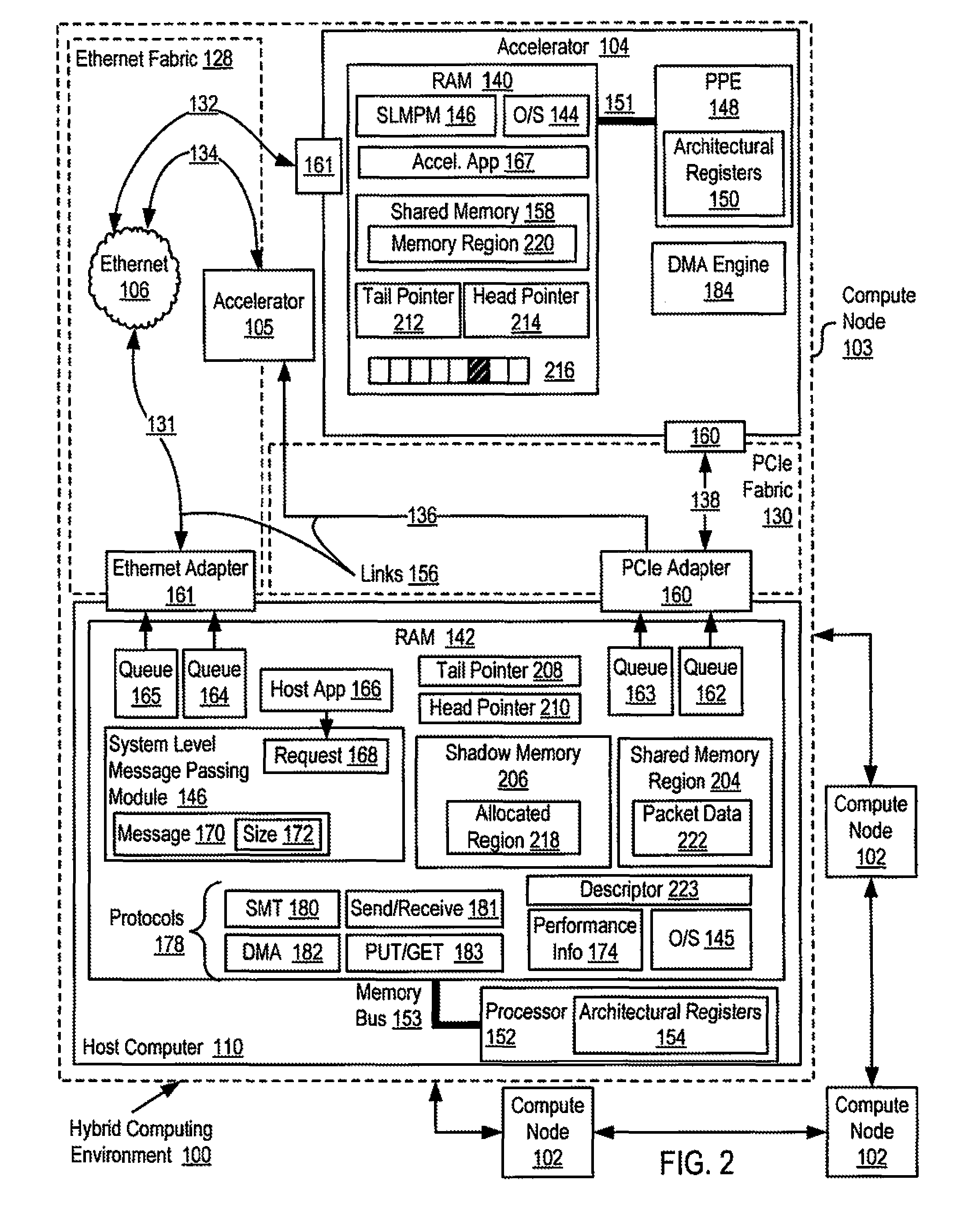Reducing remote reads of memory in a hybrid computing environment
a hybrid computing and remote read technology, applied in the field of data processing, can solve the problems that hybrid computing environments still present substantial challenges to the science of automated computing machinery, computer systems have evolved into extremely complicated devices, etc., and achieve the effect of reducing the remote read of memory
- Summary
- Abstract
- Description
- Claims
- Application Information
AI Technical Summary
Benefits of technology
Problems solved by technology
Method used
Image
Examples
Embodiment Construction
[0019]Exemplary methods, hybrid computing environments, and products for reducing remote reads of memory according to embodiments of the present invention are described with reference to the accompanying drawings, beginning with FIG. 1. FIG. 1 sets forth a diagram of an example hybrid computing environment (100) useful for reducing remote reads of memory according to embodiments of the present invention. A ‘hybrid computing environment,’ as the term is used in this specification, is a computing environment in that it includes computer processors operatively coupled to computer memory so as to implement data processing in the form of execution of computer program instructions stored in the memory and executed on the processors. In addition, the hybrid computing environment (100) in the example of FIG. 1 includes at least one host computer having a host architecture that operates in cooperation with an accelerator having an accelerator architecture where the host architecture and acce...
PUM
 Login to View More
Login to View More Abstract
Description
Claims
Application Information
 Login to View More
Login to View More - R&D
- Intellectual Property
- Life Sciences
- Materials
- Tech Scout
- Unparalleled Data Quality
- Higher Quality Content
- 60% Fewer Hallucinations
Browse by: Latest US Patents, China's latest patents, Technical Efficacy Thesaurus, Application Domain, Technology Topic, Popular Technical Reports.
© 2025 PatSnap. All rights reserved.Legal|Privacy policy|Modern Slavery Act Transparency Statement|Sitemap|About US| Contact US: help@patsnap.com



